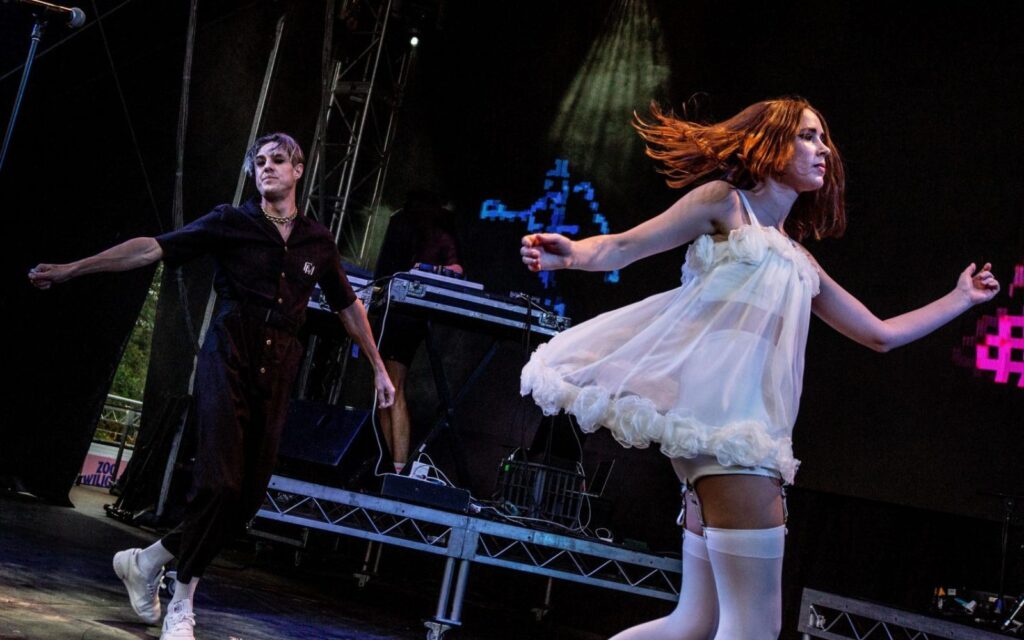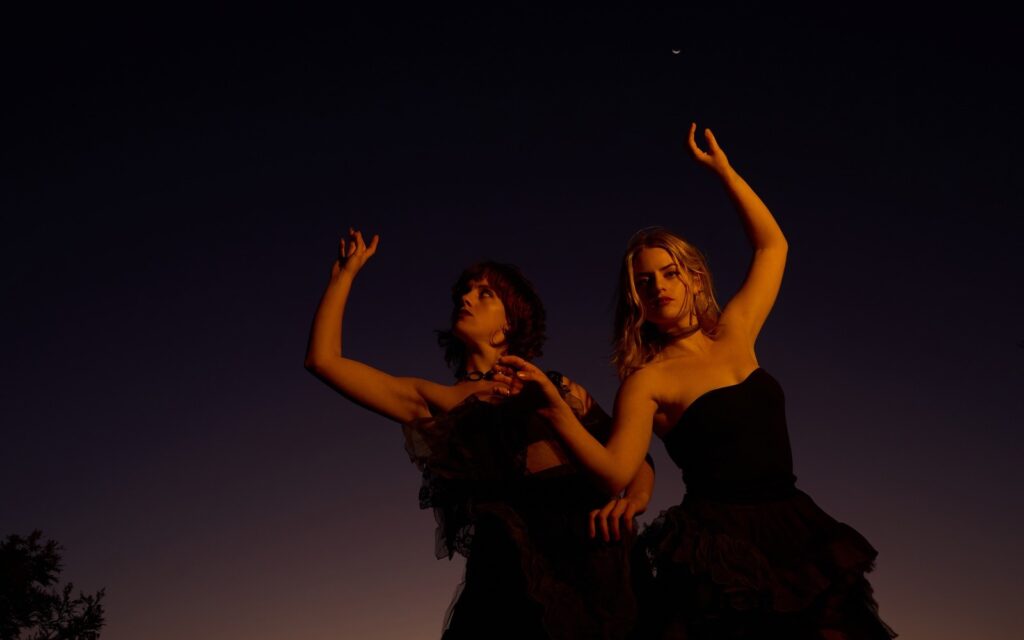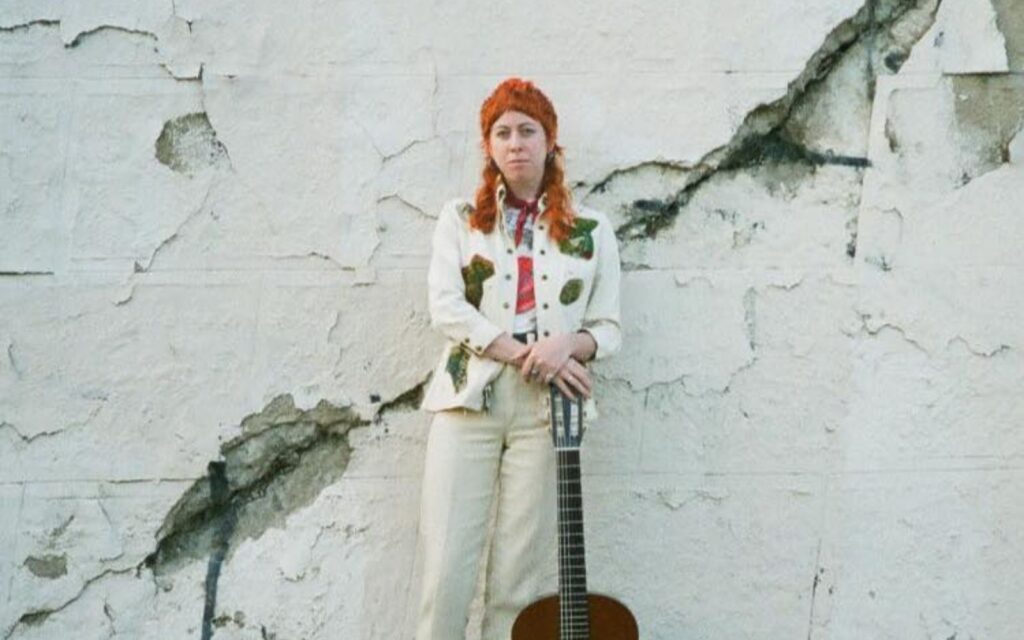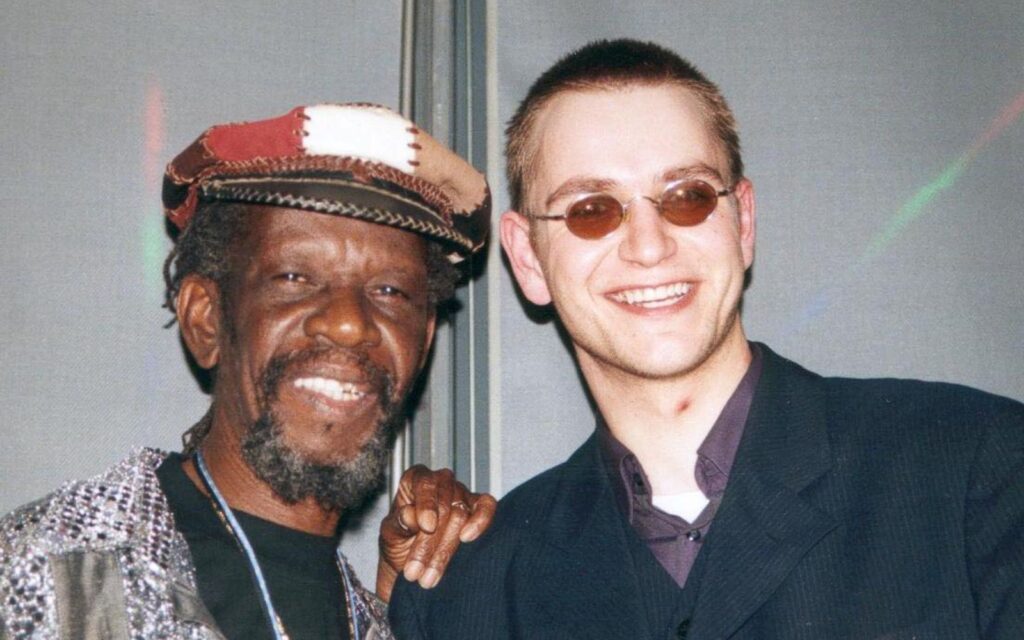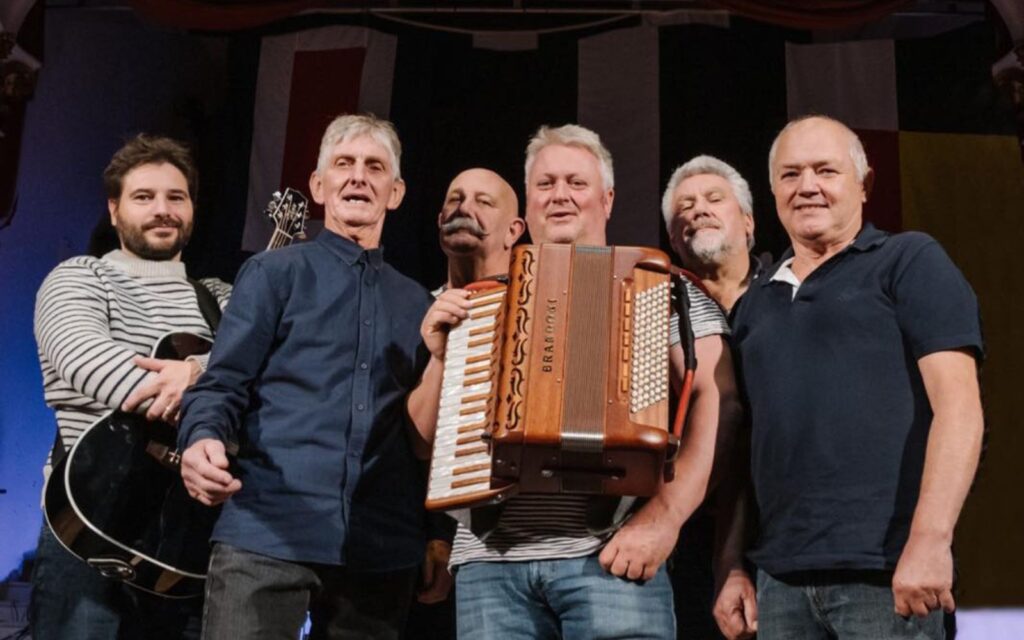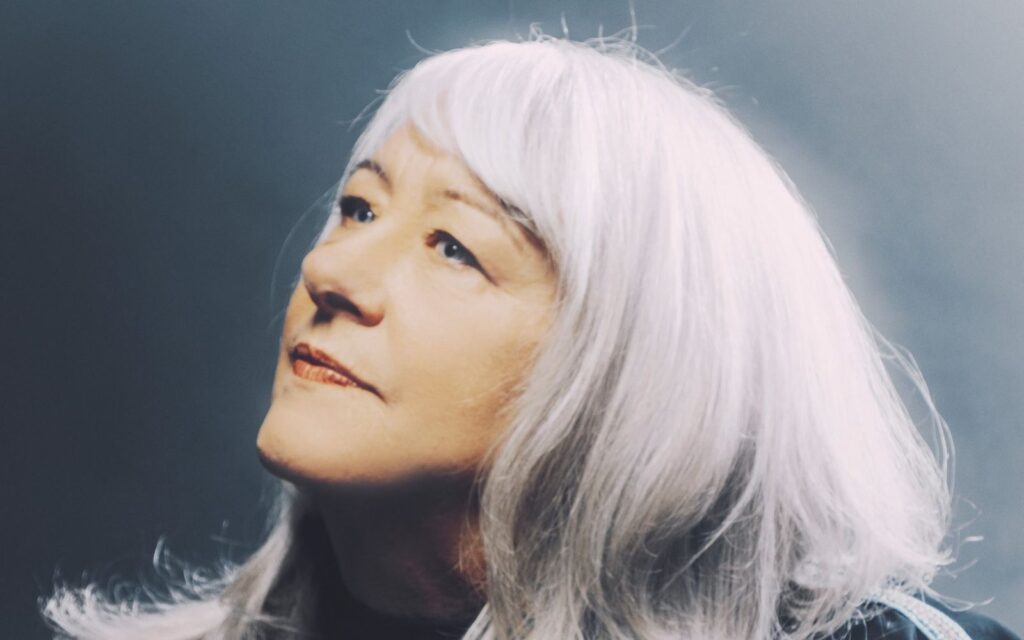Here are three more nominees for the unofficial title.
Two had fractious relationships with the music industry which no doubt sabotaged their chances of massive success; the third, despite consistent excellence and extensive touring, had only one major hit.
Keep up with the latest music news, features, festivals, interviews and reviews here.
The Little Heroes
The Little Heroes was a Melbourne pop-rock band formed in 1980 from the remnants of Carlton rock band Secret Police. The original lineup comprised Roger Hart (also known as Roger Wells and Roger Hart-Wells) on lead vocals and guitar, David Crosbie on keyboards, John Taylor on bass, and Bruce Pumpa on drums. Roger Hart’s distinctive voice, with a timbre and intonation somewhat reminiscent of David Bowie, matched the band’s tight guitar/synth-powered pop-rock sound perfectly.
The hard-working band soon became a fixture on the Melbourne pub-rock scene. After coming second in the Victorian heats of the 1980 Battle of the Sounds, The Little Heroes went on to win the national title and its $5000 first prize in Sydney later that year. Their debut non-album single She Says was released independently in November 1980, but failed to chart.
Following a change of drummer (Huk Treloar replacing Bruce Pumpa), the band released their debut album Little Heroes on the Giant label in August 1981. The album peaked at #81 nationally (Kent Music Report) and produced three singles, For a Bleeding Heart (March 1981), Last Number One (June 1981), and India Was Calling Me (September 1981). Unfortunately, none saw chart success.
The single One Perfect Day (1982), from the band’s second album Play By Numbers, was their biggest hit, reaching #12 nationally and #6 in Melbourne. The song, with its attention-grabbing piano intro and catchy chorus, still receives regular airplay. The song is certainly evocative, mining the emotions of yearning, longing and loneliness. “And tell me if it’s still raining there in England”, Hart sings plaintively. “Adventure’s so hard to come by/If you ever come back just drop by/One perfect day’’. By his own admission, melancholic themes of alienation and yearning run through many of his songs: ‘’I kind of wish I could write something different”, Hart says in the Stereo Stories blog. Despite his slight bemusement at the song’s success, it is an Australian classic, covered by John Farnham, country singer Sara Storer, Shaylee Wilde and Weddings Parties Anything. The Play By Numbers album peaked at #37 and produced two more singles – the bouncy Young Hearts (September 1982), which peaked at #35, and Saturday (Afternoon) Inside (October 1982).
There followed a raft of personnel changes. Martin Fisher (ex-Breakers) and Peter Leslie had replaced Crosbie and Taylor respectively, before they themselves left to join Dear Enemy at the end of 1982. They were replaced by ex-MEO245 keyboardist Paul Brickhill and ex-Inserts bassist Rick Loroit, who was in turn replaced four weeks later by Anthony Tavasz (ex-Modesty). Guitarist Paul Bell was then added to allow Hart to concentrate on his role as lead singer.
The band’s third and critically acclaimed album Watch The World (September 1983) was recorded in the UK and peaked at #50 nationally. It produced three singles, Watch The World (#73), Bon Voyage (#51) and Modern Times (failed to chart).
By mid-1984, The Little Heroes had called it a day.
Wendy Saddington
Melbourne soul and blues singer Wendy Saddington is probably best remembered for her outrageous Hendrix-like Afro perm, dark shadowy face makeup and the strings of beads she wore over her resolutely un-girly jeans and singlets. She will also be fondly remembered for her exceptional singing voice, and her determination not to be corralled by the pop music industry’s expectations of conformity and obedience. Her musical influences included Aretha Franklin, Besse Smith, Janis Joplin and Nina Simone, and her demeanour was rebellious and unconventional. Despite the length and variety of her career and the admiration of peers and public alike, Saddington (also known as Gandharvika Dasi) only recorded one album and one single. This could be partly attributed to the luck of timing, and partly to her refusal to conform to the industry’s conservative expectations.
Saddington began her diverse musical career in psych-soul band The Revolution, before joining Adelaide-based rock band James Taylor Move, followed by Perth R&B band The Beat ‘n Tracks, which had relocated to Melbourne. With Saddington on lead vocals, Phil Manning on guitar and vocals, Warren Morgan on piano and vocals, and Murray Wilkins on bass, the band changed their name to The Chain, after the Aretha Franklin song Chain of Fools, and began a long and successful stint as one of Australia’s most popular blues bands. Saddington left The Chain (later Chain) in May 1969 before they had made any recordings. She was eventually replaced by Queensland bluesman Matt Taylor in September 1970.
In 1968 Saddington began writing for Australia’s first local pop paper Go Set, providing feature articles before taking over the paper’s agony-aunt column, which she called Takes Care of Business. Her responses to her mainly teenaged readers’ questions about sensitive topics such as pregnancy and depression were honest and forthright and drew some public criticism, which she defiantly shrugged off.
In March 1970 she joined soul-blues band Copperwine as co-vocalist alongside founder Jeff St John. Here she made the first of her two recordings – the live album Wendy Saddington and the Copperwine Live (February 1971), which was released shortly after she had left the band. In July that year, she released her only hit single, Looking Through a Window, which reached a peak of #22 nationally. The song was written by Aztecs keyboardist Warren Morgan and produced by Morgan and Billy Thorpe. It was later added to the Copperwine Live album, which was then reissued by Festival/Infinity as Looking Through a Window in 1972.
In March 1973 Saddington played The Nurse in the local production of The Who’s rock opera Tommy, alongside Billy Thorpe, Daryl Braithwaite, Colleen Hewett, Broderick Smith, Jim Keays, Doug Parkinson, Ross Wilson and Keith Moon. She played with a variety of bands and musicians in the 70s and early 80s before forming her own group, the Wendy Saddington Band, featuring Sherbet’s Harvey James on guitar, Bobby Gebert on keyboards, Bill Rylands on bass, and Chris Sweeney on drums. The band re-emerged in 1987 playing mainly reggae with Mick Liber on guitar (ex-Python Lee Jackson), Rose Bygrave on keyboards (ex-Goanna), Angelica Booth on bass and Des McKenna on drums. They recorded an album in Tamworth but in an extraordinary twist of fate, Saddington was denied a third album release when the master tapes were lost. She also performed in the early 90s with keyboard player Peter Head. Her last live concert was A Soul Séance in Melbourne in December 2012.
Saddington worked extensively with the Hare Krishnas, and towards the end of her life was an enthusiastic participant in the congregation at the nearby Albert Park temple. She died peacefully at home in Albert Park on 21 June 2013.
Mark Gillespie
Mark Gillespie was a restless and enigmatic Melbourne singer-songwriter and musician whose love-hate relationship with the commercial music industry resulted in sporadic recordings of exceptional quality, interspersed with reclusive escapes to Asia. Despite his extraordinary talents, Gillespie was never destined for household-name status, due in no small part to his reluctance to play the role of promoter and media performer in an industry of which he was deeply suspicious.
Gillespie was part of the 1970s Carlton scene, and a regular at inner-north suburban venues such as Martinis and Bombay Rock. His roots-rock style garnered a large and devoted following in his hometown and around Australia. He was a poet and a writer who also studied architecture at the University of Melbourne, and was a co-founder of Outback Press. In the 1980s, he toured with international acts Tom Waits, Maria Muldaur and Rodriguez.
Gillespie’s debut album Only Human was released in 1980 to rapturous acclaim. The album featured a star-studded lineup of backing musicians – Ross Hannaford (ex-Daddy Cool) on guitar and backing vocals, Rex Bullen (ex-Bakery) on keyboards, Joe Creighton (ex-Billy T) on bass, Mark Meyer on drums, and Lisa Bade on backing vocals. As well as providing lead vocals, Gillespie himself played guitars, synthesisers, keyboards, mandolin and piano. The album produced three quality singles: Only Human (June 1980), Small Mercies (September 1980), and Deep as You (April 1981) but none were hits, possibly because Gillespie had left the country to explore Asia and was not around to promote them.
Gillespie returned to Australia to record his second album Sweet Nothing (March 1982) on Glen Wheatley’s Wheatley label. The album peaked at #32 nationally (#9 in Melbourne) and produced three singles: Nothing Special (February 1982), Traveller in the Night (June 1982), and Night and Day (October 1982). Of these, Nothing Special was the most successful chart-wise, reaching #46 nationally, a chart position which belies the quality and power of the song. He stayed in Australia long enough to release a third album, Ring of Truth, in January 1984, before disappearing to Bangladesh for nine years.
Mark Gillespie returned to Australia in 1992 to make the critically acclaimed Flame album, before quitting the music industry for good, jaded and disillusioned. He returned to Bangladesh where he set up a refuge for women and children, and lived the rest of his life alongside locals in a rural village. He died in a Dhaka hospital on 11 November 2021.
Read the rest of the series here.


